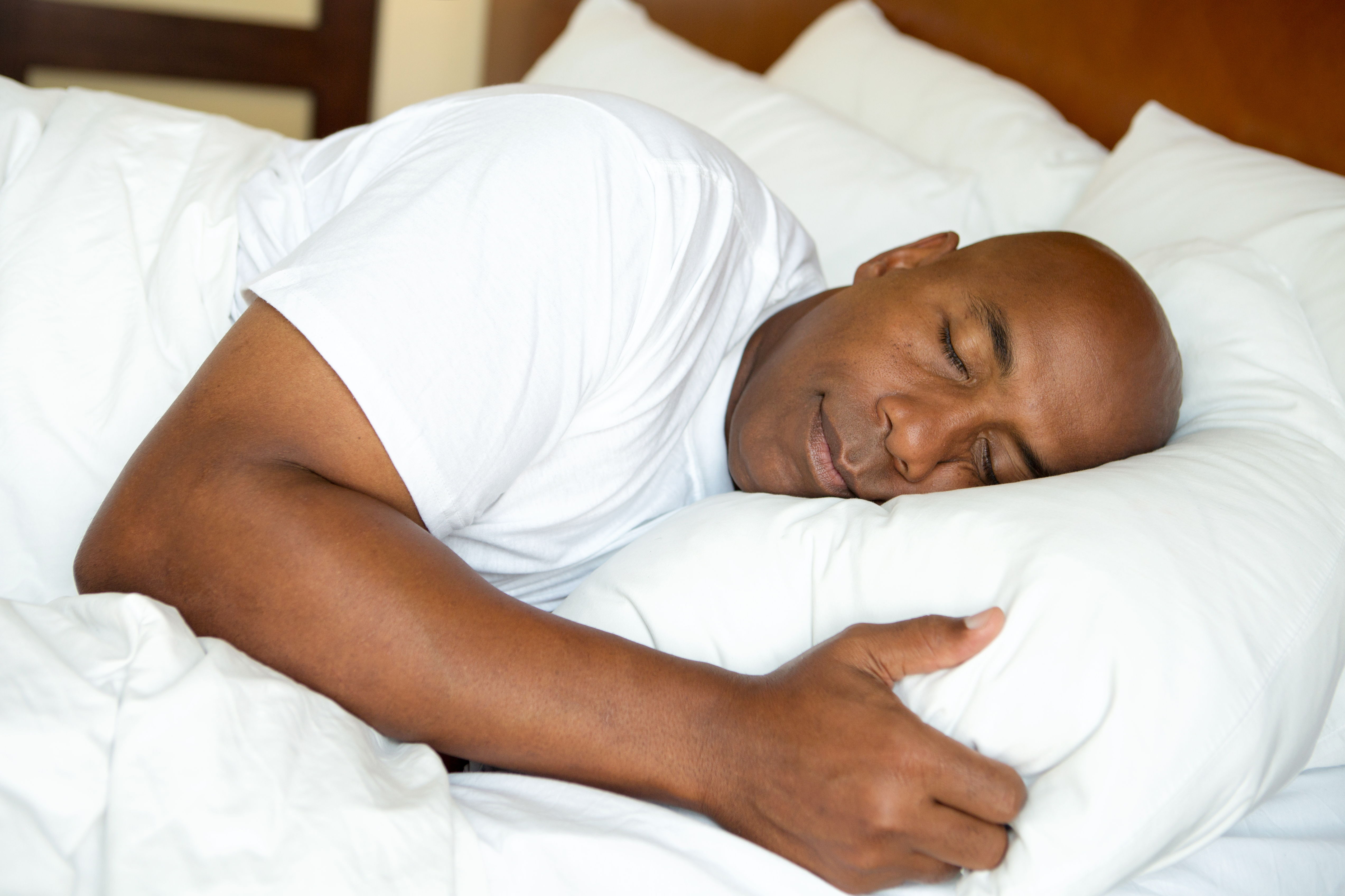The power of sleep for your wellbeing
January 14, 2023

If you're reading this article, the chances are that you've experienced firsthand the negative impact of poor sleep on your overall health and wellbeing. Whether it's difficulty falling asleep, staying asleep, or simply not feeling rested after a full night's slumber, the importance of sleep in maintaining both physical and mental health cannot be overstated.
The benefits of getting enough sleep are numerous and
far-reaching, from boosting your immune system to improving cognitive function and emotional
regulation. In this article, we'll delve into the science behind sleep and
explore the various ways in which it impacts our health and happiness. So grab
your favorite pair of pajamas and get ready to learn why sleep is truly the
ultimate superpower for your wellbeing!
Unlocking the power of sleep: how adequate rest can boost your body and mind
Sleep is essential for both physical and
mental health and wellbeing. In this section, we'll delve into the numerous
ways in which getting enough sleep can support your overall health and
happiness. From boosting the immune system and promoting heart
health to improving cognitive function and emotional regulation, the benefits
of sleep are far-reaching and undeniable. So if you're looking to improve your
overall health and happiness, make sure you're getting enough shut-eye.
The physical benefits of sleep
When it comes to the physical benefits of sleep, the list is almost endless. Adequate sleep has been shown to:
Boost the immune system: During sleep, your body produces proteins called cytokines, which help to fight infection and inflammation. Without enough sleep, your body may not produce enough of these immune-boosting substances, leaving you more susceptible to illness.
Promote heart health: Studies have linked poor sleep with an increased risk of heart disease, high blood pressure, and stroke. On the other hand, getting enough sleep has been shown to lower blood pressure and reduce the risk of developing these conditions.
Support healthy weight management: Lack of sleep has been linked to an increased risk of obesity and difficulty losing weight - while adequate sleep can help to regulate appetite and metabolism, making it easier to maintain a healthy weight.
The Mental Benefits of Sleep
In addition to the physical benefits, sleep is also crucial for mental health and wellbeing. Some of the mental benefits of sleep include:
Improved cognitive function: During sleep, your brain is hard at work clearing out toxins and consolidating memories. This process is essential for maintaining cognitive function and supporting learning and problem-solving skills.
Enhanced emotional regulation: Lack of sleep has been linked to an increased risk of anxiety and depression and difficulty regulating emotions. Conversely, getting enough sleep can help to improve mood and promote overall emotional wellbeing.
Increased creativity and productivity: A well-rested brain is a more creative and productive brain. So if you're looking to increase your productivity or tap into your creative potential, make sure you're getting enough sleep.
Common causes of sleep disturbances and how to address them
You're not alone if you're having trouble getting a good night's rest. Many things can disrupt sleep, from stress and anxiety to medical conditions and environmental factors. In this section, we'll explore some of the most common causes of sleep disturbances and provide tips on how to address them. Whether you're dealing with occasional insomnia or chronic sleep issues, these strategies can help you get the rest you need to feel your best!
There are many things that can disrupt sleep, including:
Stress and anxiety: Stress and anxiety are common culprits when it comes to sleep disturbances. If you're feeling overwhelmed or anxious, it can be challenging to relax and fall asleep.
Medical conditions: Certain medical conditions, such as sleep apnea, restless leg syndrome, and chronic pain, can disrupt sleep. If you're dealing with a medical condition that affects your sleep, it's essential to work with a healthcare provider to manage your symptoms and get the rest you need.
Environmental factors: Noise, light, and temperature can all affect sleep quality. If you're having trouble sleeping, try creating a comfortable and conducive sleep environment, such as a cool, dark, and quiet bedroom.
Caffeine and alcohol: Both caffeine and alcohol can disrupt sleep, so limiting your intake is important, especially in the hours leading up to bedtime.
Poor sleep habits: Poor sleep habits, such as irregular sleep schedules and prolonged screen time before bed, can also contribute to sleep disturbances.
How to Address Sleep Disturbances
If you're struggling with sleep disturbances, there are several things you can try to improve your sleep quality:
Practice relaxation techniques: Techniques such as meditation, deep breathing, and progressive muscle relaxation can help to calm the mind and body, making it easier to fall asleep.
Establish a bedtime routine: A consistent bedtime routine can help to signal to your body that it's time to wind down and prepare for sleep.
Avoid screens before bed: The blue light emitted by screens can disrupt your body's production of the sleep hormone melatonin, making it harder to fall asleep. Try to avoid screens for at least an hour before bed.
Create a comfortable sleep environment: As mentioned, factors such as noise, light, and temperature can affect sleep quality. Make sure your bedroom is a comfortable and conducive place to sleep.
Seek help if necessary: If you're having persistent sleep difficulties, it may be worth speaking to a healthcare provider or sleep specialist. They can help to identify any underlying causes and provide guidance on how to address them.
Can massage therapy help?
Massage therapy has been shown to have a number of benefits for sleep. By reducing stress and anxiety, massage can make it easier to fall asleep and stay asleep. It can also improve sleep quality by promoting deep relaxation and reducing muscle tension, which can alleviate common sleep disruptions such as restless leg syndrome and other physical discomforts. In addition, massage has been shown to improve sleep patterns by helping to regulate the body's natural sleep-wake cycle. By promoting relaxation and reducing stress, massage can help to "reset" the body's internal clock and promote more restful sleep. Furthermore, massage can support overall health and wellbeing, which can, in turn, improve sleep. By boosting the immune system, reducing muscle tension, and promoting relaxation, massage can help to create a sense of overall balance and wellbeing, which can contribute to better sleep.
It's worth noting that the effects of massage on sleep may vary from person to person, and it may take a few sessions to see an improvement. However, overall, the research suggests that massage can be a useful tool for improving sleep and promoting overall health and wellbeing.
Interested in trying massage for yourself?
As you can see, the benefits of massage therapy go beyond just improving sleep. From reducing stress and anxiety to promoting overall health and wellbeing, massage has the potential to transform your life in countless ways. If you're interested in experiencing the many benefits of massage for yourself, consider giving Bigtoe a try. As a mobile massage company, Bigtoe Pose makes it convenient and easy to receive high-quality massage therapy at a time and place that works for you. So why wait? Take the first step towards a happier, healthier you today, and give Bigtoe Yoga a try. You deserve it!
Need a massage today?
Same-day massage sessions available near you. Book online and a licensed Bigtoe therapist will be at your door - fast.
Book a Session Now




